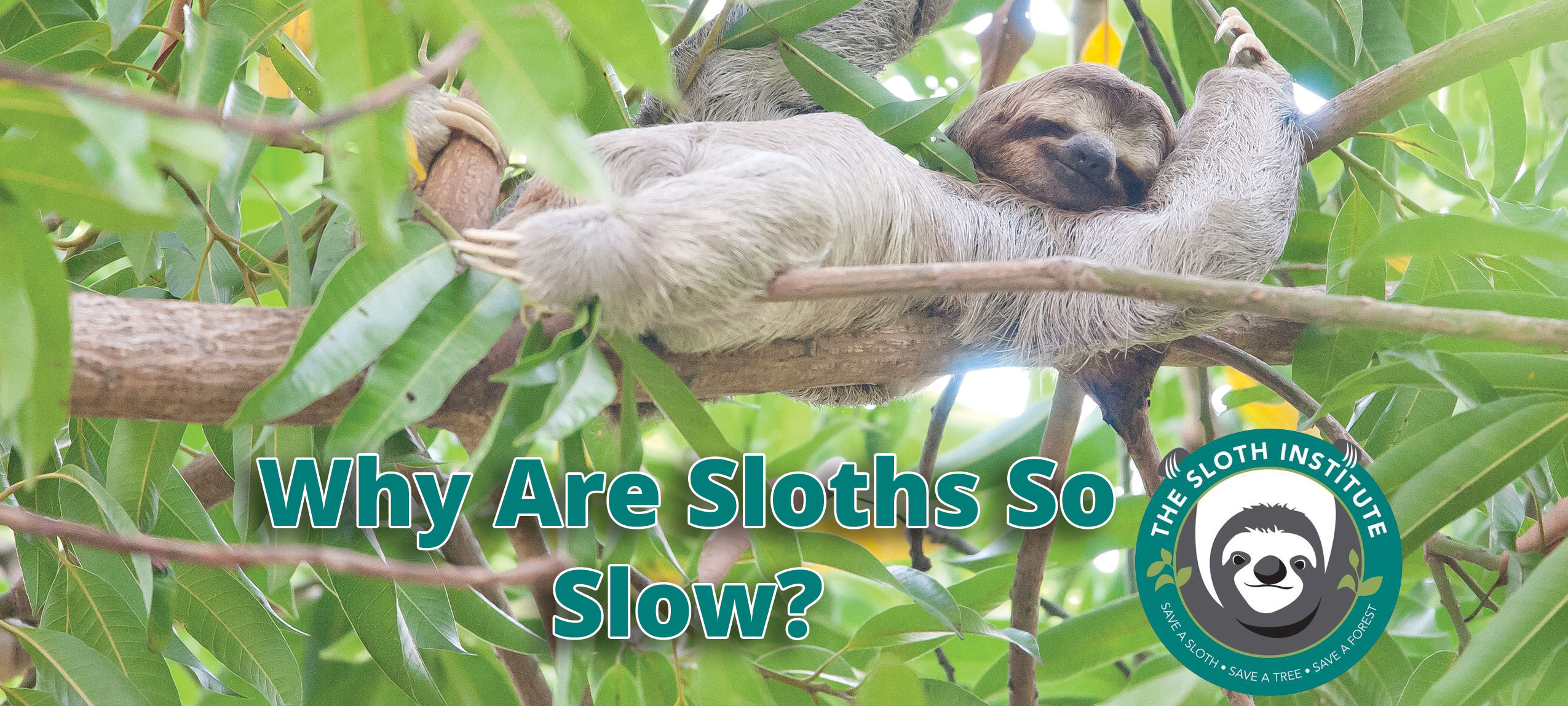Why Are Sloths So Slow?
This is probably the main question we get (and why they poop on the ground…stay tuned for that). Stereotypically speaking, sloths are often categorized as lazy and dumb because of their cryptic habits. In general, we humans tend to recognize speed and power as the most successful way to go about life. However, their slow lifestyle is not something to be teased or reviled. In fact, their slow lifestyle should be celebrated as they have been highly successful (before human encroachment) at living in a rainforest environment. Their strategy for success is one of deliberate and calculated movements and staying under the radar. Below are the three main reasons why sloths are slow.
 A need to conserve energy
A need to conserve energy
Sloths have the least muscle mass of any mammal. They are also herbivores (two-fingered sloths are somewhat omnivorous) which is a diet that doesn’t bring in a lot of calories. Therefore, they don’t have a lot of calories to exert or a lot of places to store energy. By being slow they can save precious energy while searching for their next meal so they don’t get sick or starve to death.
A need to climb carefully
Sloths are excellent climbers but they can also be a little clumsy. They are not known for their vision (although three-fingered sloths have much better vision than two-fingered sloths) or their balance. However, they are extremely flexible and have a strong grip. By moving slowly through the trees, they are able to plan their travel route more carefully and lessen the chance that they will fall somewhere dangerous. Sloths are actually great at falling, however if they fall on something hard or pointy (or man-made structures) they are more likely to get harmed in the incident.
A need to stay invisible
There aren’t many things more important for sloths than not getting eaten by a predator. Obviously, that means the end of everything for them. By being slow, sloths are able to be silent. We have watched sloths for thousands of hours in the forest and can attest to their ability to stay hidden. Not only through amazing camouflage skills, but also through their ability to move silently through the forest canopy. If a predator can’t hear them, then they are more likely to not find them.
If you ever see a sloth in danger please call our SLOTH RESCUE number, 87-SLOTHS.


